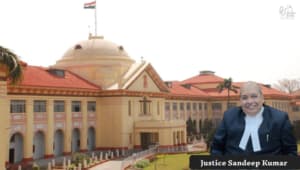The Kerala High Court has ruled that lawyers participating in court proceedings via video conferencing do not have the right to record and circulate the proceedings. The ruling came in response to Advocate Mathews Nedumpura’s actions, where he recorded and shared court proceedings through WhatsApp, prompting the court to consider contempt proceedings against him.
Court’s Observations and Legal Standing
Justice P. Gopinath, who presided over the matter, emphasized that recording and circulating court proceedings not only undermines the dignity of the judiciary but is also strictly prohibited under the relevant rules.
"I am prima facie of the opinion that the recording of proceedings of this Court and circulating it in the manner indicated above constitute contempt of court as it amounts to interference with the administration of justice and lowers the dignity of this Court, especially when the Rules of this Court prohibit recording of the proceedings." - Kerala High Court
Read Also:- Bombay High Court Imposes ₹1 Lakh Penalty for Unauthorized Audio Recording of Court Proceedings
The Court referenced the Electronic Video Linkage Rules for Courts (Kerala), 2021, and the Standard Operating Procedure (SOP) for Attending Court Proceedings through Video Conferencing before the Kerala High Court, both of which explicitly prohibit recording proceedings.
Advocate’s Argument and Court’s Rebuttal
Advocate Nedumpura contended that he had a 'right' to record and circulate court proceedings in the interest of transparency. However, the Court rejected this argument, emphasizing that judicial proceedings must be conducted with decorum and in compliance with established rules.
The Court directed its registry to bring the matter before the Chief Justice to determine whether contempt proceedings should be initiated.
Case Background
The observations were made while hearing a batch of petitions filed by companies challenging proceedings initiated under the Securitisation and Reconstruction of Financial Assets and Enforcement of Security Interest Act, 2002 (SARFAESI Act). The petitioners, including M/s M.D. Esthappan and Another, argued that they were entitled to protection under the Micro, Small, and Medium Enterprises Development (MSMED) Act, 2006.
Read Also:- Kerala High Court: Accused Cannot Demand Further Investigation, But Courts Can Act Against Unfair Probes
The Court examined whether the banks had violated RBI guidelines by not considering the petitioners’ MSME status before initiating SARFAESI proceedings. However, the Court ruled that the petitioners had failed to raise their MSME status before their accounts were classified as Non-Performing Assets (NPA), making their claims untenable.
The High Court concluded that the borrowers had engaged in multiple litigations across different forums and failed to invoke MSME protections in a timely manner. Consequently, the Court dismissed the petitions and upheld the SARFAESI proceedings against them.
Case Title: M/s M. D. Esthappan And Another v Reserve Bank of India and Others & Connected Cases















